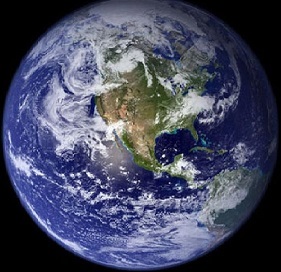A new study on Planetary Limits was published on Tuesday, this time tracking 31 values : World Scientists’ Warning of a Climate Emergency 2021 [1].
This is an update to a 2019 paper, signed by more than 11,000 scientists from 153 countries [2].
The study is summarised in Critical measures of global heating reaching tipping point. It found that 18 out of 31 tracked planetary health indicators are at all-time record values, including greenhouse gas concentrations, ocean heat content and ice mass.
For the first time, world cattle and sheep livestock numbers soared past 4 billion, which represents significantly more mass than all humans and wild mammals combined
It is noticeable that renewable energy (#20) is only 5% of the total energy consumed – there is still a long way to go to decarbonise the economy!
The UK continues to be an above average contributor to global warming : the average carbon footprint per person in the UK, per year, is 12.7 tonnes CO2e which is three times greater than the average global footprint per person of 4.26 tonnes CO2e (#5).
In fact the situation is worse than the indicators show. It is likely that an outbreak of African swine fever in China reduced the pork supply so that per capita meat production declined by about 5.7% between 2018 and 2020 (#21), otherwise this would have increased.
Air transport (#25) has declined because of Covid-19 and will increase as soon as restrictions are lifted. Further, although disinvestment from polluting industries seems to be moving in the right direction (#30), these industries need to be wound down rather than moved into unaccountable ownership by private and state backed operators [3]
Now for a vegan comment; I thought I’d check whether a global uptake of a plant-based diet would help to reverse any of these planetary health indicators.
Assuming that a plant-based diet will reduce energy usage, and CO2 equivalent output, it appears that 21 of the 31 limits are affected, confirming that a plant-based diet is one of the most effective steps that can be taken in order to keep within safe planetary limits.
| # | Group | Indicator Name | Value |
| 1 | Emissions | Carbon dioxide (CO2 parts per million) | 415.00 |
| 2 | Emissions | CO2 emissions (gigatonnes CO2 equivalent/yr) | 33.50 |
| 3 | Emissions | Methane (CH4 parts per billion) | 1890.00 |
| 4 | Emissions | Nitrous oxide (N2O parts per billion) | 334.00 |
| 5 | Emissions | Per capita CO2 emissions (tonnes CO2 equivalent/yr) | 4.26 |
| 6 | Trees | Area burned in the United States (million hectares/yr) | 4.10 |
| 7 | Trees | Brazilian Amazon forest loss (million hectares/yr) | 1.11 |
| 8 | Trees | Global tree cover loss (million hectares/yr) | 25.80 |
| 9 | Ice | Antarctica ice mass change (gigatonnes) | -2760.00 |
| 10 | Ice | Glacier thickness change (m of water equivalent) | -24.80 |
| 11 | Ice | Greenland ice mass change (gigatonnes) | -4180.00 |
| 12 | Ice | Minimum Arctic sea ice (million km2) | 3.92 |
| 13 | Ocean | Ocean acidity (pH) | 8.07 |
| 14 | Ocean | Ocean heat content change (1022 joules) | 25.50 |
| 15 | Ocean | Sea level change relative to 20-year mean (mm) | 50.30 |
| 16 | Ocean | Surface temperature change (°C) | 0.78 |
| 17 | Energy | Coal consumption (Exajoules/yr) | 158.00 |
| 18 | Energy | Gas consumption (Exajoules/yr) | 142.00 |
| 19 | Energy | Oil consumption (Exajoules/yr) | 184.00 |
| 20 | Energy | Solar/wind consumption (Exajoules/yr) | 25.50 |
| 21 | Food | Per capita meat production (kg/yr) | 48.20 |
| 22 | Food | Ruminant livestock (billion individuals) | 4.05 |
| 23 | Population | Human population (billion individuals) | 7.87 |
| 24 | Population | Total fertility rate (births per woman) | 2.40 |
| 25 | Economy | Air transport (billion passengers carried/yr) | 2.80 |
| 26 | Economy | Carbon price ($ per tonne CO2 emissions) | 15.90 |
| 27 | Economy | Fossil fuel subsidies (billion USD/yr) | 181.00 |
| 28 | Economy | GHG emissions covered by carbon pricing (%) | 21.50 |
| 29 | Economy | Governments that have declared a climate emergency (#) | 1890.00 |
| 30 | Economy | Total institutional assets divested (trillion USD) | 14.00 |
| 31 | Economy | World GDP (trillion current US $/yr) | 86.80 |
[1] https://academic.oup.com/bioscience/advance-article/doi/10.1093/biosci/biab079/6325731
[2b] https://academic.oup.com/bioscience/article/70/1/8/5610806
